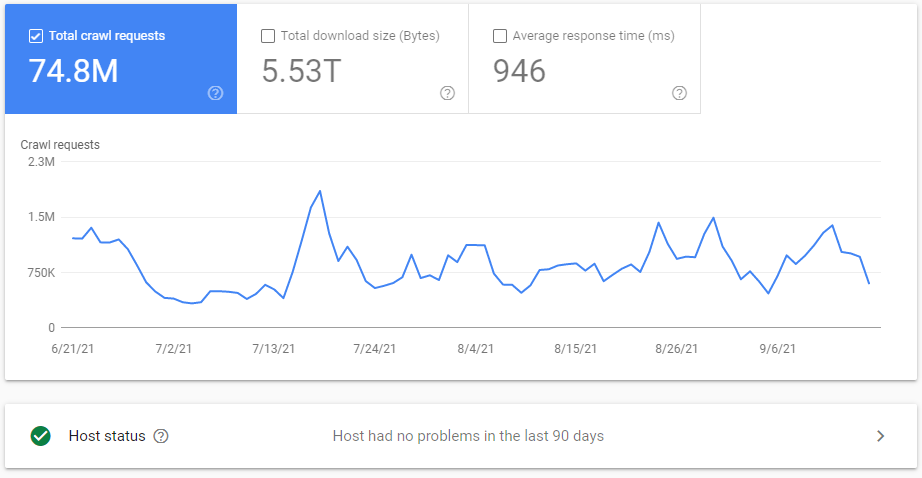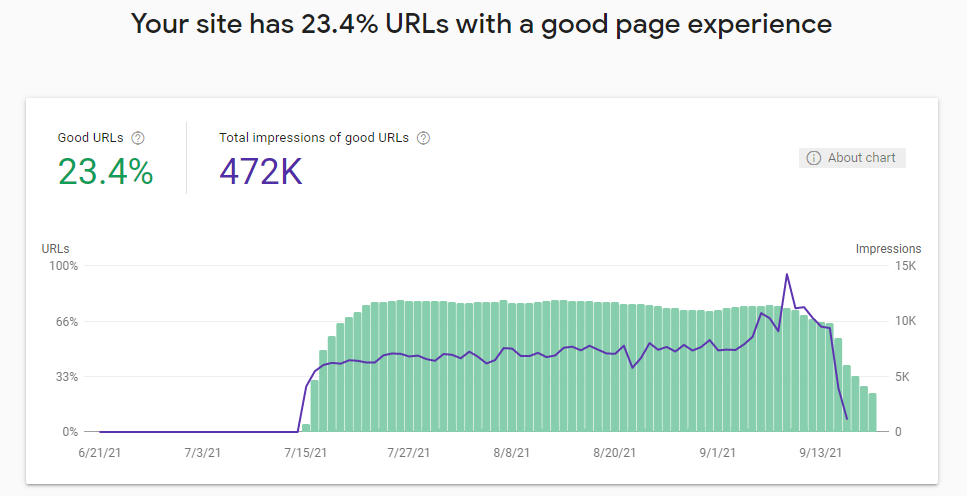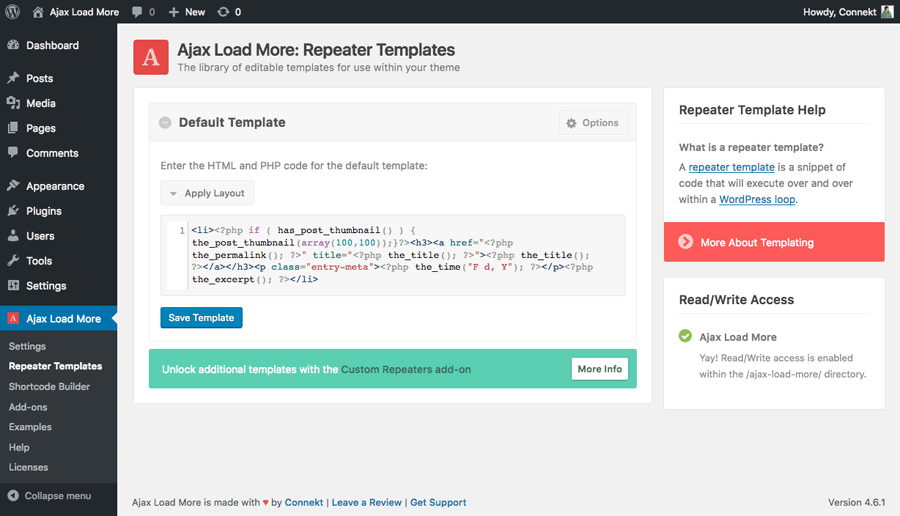Publish Date - September 20th, 2021
|Last Modified - February 3rd, 2023
Your website or blog can have the best, most informative, and well-researched content, but if it doesn’t rank on Google, people – especially your target audiences – won’t see it. This is where investing in a technical SEO consultant may be helpful.
First off, let’s talk about SEO. You probably already know that search engine optimization (SEO) is a crucial digital marketing tool for any marketing strategy. By definition, SEO is the practice of increasing the quality and amount of traffic to your website through organic search engine results. Traditionally, the ‘keyword’ research and content strategy has been the cornerstone of effective SEO. However, this concept has since been expanded to include content (the vehicle you use to reach your audiences, such as a blog), off-page SEO (e.g., backlinking and social media), and technical SEO. All of these are now major components of an effective SEO strategy.

The main reason why SEO is so important is that it can help you achieve your business goals by enabling you to build a more search engine friendly website. This will allow Google to rank you higher, thereby providing more traffic to your website and conversions in the long-run.
Knowing the above makes it worthwhile for you to invest in an SEO consultant, but not just any SEO consultant. Specifically, a technical one (like me :)). Because websites are becoming more complex, technical SEO consultants have an advantage over regular SEOs. They can help your business keep up with emerging, ever-evolving technologies to ensure your content is as visible as possible to consumers.
Here’s an overview of a technical SEO consultant, including what they are and the services they can provide to help your content reach the audiences you want and need.
What is a technical SEO consultant?
At their core, a technical SEO consultant knows how to solve difficult technical SEO issues for your website so that, ultimately, users can see your content. This includes anything from crawling, to indexing to ranking. By optimizing your website from a technical standpoint, you will rank more efficiently for the keywords that you’re targeting – thereby gaining more traffic to your site. But I’m getting ahead of myself.
By definition, a technical SEO consultant is someone who has the working and strategic understanding of how search engines (such as Google, Bing, Baidu, etc.,) work and can effectively optimize a website from a technical infrastructure standpoint so that it can rank optimally in the aforementioned search engines.
From top down, technical SEO consultants are highly technical in nature and usually stem from a developer background or are self-taught via tools like Udemy, Coursera, or even coding bootcamps.
Here are some additional skills that technical SEO consultants usually possess:
- Understanding of front-end developer skills (e.g., HTML, CSS, and JS).
- Practical experience with version control, pipelines and software packaging (Gems (Ruby), npm (JS)).
- Understanding of backend server-side languages (e.g., PHP, ASP.net, C#, and Express).
- Fundamental understanding of website crawlers and how they work (e.g., how webpages are scraped and parsed, downloaded, and analyzed).
- Understanding of interlinking between specific pages and how rel tags and meta tags in HTML work.
- Understanding of scrapers and how to pull large HTML files.
- Comfort dealing with large amounts of data (usually spreadsheets with millions of cells).
- Understanding of server logs, HTTP requests, user-agents, and crawling errors (e.g., 404, 400, 500, and 503).
- Understanding of complex linking strategies that are more technical in nature (such as PBNs).
Note: Because Google is the largest and most relevant search engine, I will focus on Google optimization, but this information generally applies to other search engines such as Bing as well.

How is an SEO consultant different from a technical SEO consultant?
An SEO consultant is someone who can help optimize your website to achieve higher search engine rankings. Sound familiar? However, the key difference between this and a technical SEO consultant is that the latter can also do anything that is on-site (meaning a part of your website) and technical (meaning outside of your content). Technical SEO consulting concentrates on how a website is structured from a technical standpoint. For example, what framework is the website built on? Or, how does Google actually interact with the website from a crawling standpoint (for example, is the ‘sitemap.xml’ or ‘robots.txt’ optimized to where it should be?).

This is not to say that SEO consultants are not technical. SEO itself is technical in nature. It’s just that regular SEO consultants are typically not as well-versed in particular skills that a technical SEO consultant is equipped with. For example, understanding how Google works with Asynchronous JavaScript and XML (AJAX), or the fact that Google can pick up an Async script canonical tag that’s hardcoded is pretty important – but not every SEO consultant may understand this technical concept.
Here are some more differences between an SEO and a technical SEO consultant:
Features of an SEO consultant:
1. Typical strengths are more content marketing and link-building, which are extremely important to an SEO campaign. They might also be comfortable with things like mini-blogging as well.
2. Have a good understanding of on-site SEO, including content, HTML markup, keyword targeting, and indexing.
3. Focus more on backlinking strategies.
4. Are usually embedded within or are a part of a general marketing, content strategy, or user experience.
Features of a technical SEO consultant:
1. Understand content marketing and link-building, but may not have the in-depth knowledge of content strategy and general marketing tactics of a regular SEO consultant.
2. Have a good understanding of off-site SEO, including leveraging social media and backlink strategies.
3. Concerned with internal website changes that affect infrastructure, crawler and indexing journey, and site rendering.
4. Ensure best SEO practices when it comes to markup, coding, and indexing.
5. Have a great deal of understanding of web fundamentals, while being able to tie the business importance of certain technologies. For example, knowing that content delivery networks (CDNs) can speed up your site is important. But the configuration of the cache-headers for those CDNs are also important. While your average SEO consultant may have a good understanding of how CDNs work, they may not have the slightest clue of how response headers work in an HTTP request – thereby missing a crucial optimization point.
To summarize, what differentiates a regular SEO consultant from a technical one is competency and skill in the technical aspects of website structure and indexability. Technical SEOs usually work closely with engineers and platform engineers to ensure that best SEO practices are followed when it comes to the applications that are built for the web.
What elements of my website can a technical SEO consultant optimize?

As mentioned earlier, a technical SEO consultant can fix basically any existing issues with your website that may be causing problems for search engines. However, they will also go one step further to optimize the technical elements of your website so that your webpages are well-structured for online users and web crawlers.
This is what a technical SEO consultant can do to help ensure your website ranks on Google and other search engines:
1. Increase page speed: Improve how fast your website loads. This is a key element in your SEO strategy for the user and search algorithms. A technical SEO consultant will check for things such as image optimization, malicious or inefficient code (memory leaks), and proper load rendering on the page that could cause a slow page load time.
2. Ensure your website is crawlable for search engines. Search engines use robots to crawl your website. The robots follow links to discover content on your site. A great internal linking structure will make sure that these robots understand the most important content on your site.
3. Optimize your website for mobile. As things move toward being more mobile and literally everyone’s on their phone all the time, a better, more attractive design increases the likelihood that people will stay and navigate your site. A technical SEO consultant will make sure that your site can easily be navigated and has that attractive design. They’ll also ensure that your images are optimized with appropriate names and ‘alt’ attributes for the search engine. They can also help with pointing out any pages that aren’t so mobile-friendly.
4. Optimize meta tag information. Every website has information that sums up what the site is about to the user and search engines. This information is contained within the meta tags of the website (usually at the top of a website’s source code). It contains elements such as title, description, canonicals, hreflangs, meta keywords, and alternative tags (which help Google differentiate between other top level domains (TLDs) you may own).
5. Check for dead links. Your technical SEO consultant will advise you on how links can make or break your SEO strategy, including having dead links. If a link leads to a non-existing page on your site, people will encounter a 404 error page. There goes your carefully crafted content and any link equity you’ve created for that specific page!
6. Ensure security. Secure browsing is important to both users and search engines. A technical SEO consultant can help correctly secure your website (including SSL and mixed content issues).
7. Check for page structure. How your page is structured is another factor technical SEO consultants will keep in mind – particularly for longer-form content. This includes semantic layout, proper HTML tags, any asynchronous content that may not be indexed, and other similar elements.
8. Optimize your crawl budget. For those with enterprise websites (well over 200k+ pages), a technical SEO will ensure that your crawl budget is optimized. This could mean culling pages of low value or optimizing your sitemap.xml.
- Support your overall website structure. Site architecture is a very important aspect of indexability. Technical SEOs will help support this concept by ensuring that the most important pages that need to rank are at the front and centre of Google.
- Support framework migrations. Technical SEOs will support migrations from a non-technical SEO standpoint (content and links) and a technical standpoint (redirect maps). Whether you’re switching to Shopify or the newest, hottest CMS, technical SEOs should have a great deal of understanding of this.
- Web accessibility. Allow all users and search engines to make sense of your site (mobile and other device usability, web accessibility, etc.)
- Guide the technical structure of multi-language and multi-region websites. Most technical SEOs should have great understanding of multi-region / multi-language websites. They should have an understanding of how hreflangs, canonicals, and TLDs can affect the way Google sees a multi-site.
Is all of this really that important?
Yes, technical SEO is extremely important. I’m a technical SEO consultant and I know what I’m talking about. You don’t want factors like your pagespeed, a bloated website (that is, with a million pages), or AJAX-loaded content to hamper your ability to rank on Google. A technical SEO consultant can advise other ways to load that content, speed up your website, and optimize crawl budget so that you can get the ranking that your website deserves.
In my view, technical SEO is anything that’s outside the realm of content marketing and generic backlinking. This includes:
- HTML markup and semantic layout.
- Indexing and crawl budget.
- Meta-data (hreflang, canoncials).
- AJAX loading.
- Pagespeed and load times.
- Overall application performance.
- Advanced linking schemes (for example, PBNs and automated link building).

While developers usually take part in all these aspects, technical SEOers have a better understanding of these things (and how to solve them) than your average marketer or SEO. Developers shouldn’t need to know how to do SEO; it’s up to marketing to bridge the gap between marketing and development when it comes to search engine optimization. In fact, a good technical SEO consultant will have a wide breadth of experience in solving the same issues across multiple platforms.
For example, pagespeed (or page experience by Google) is regularly offered up by many SEO companies and agencies as a service. “Pay an x amount of dollars, and we’ll optimize your website to the 99th percentile.” While this is promising, what follows are usually aggressive development strategies to trim bloated content or completely get rid of certain aspects of a website owner’s website. While sometimes this is necessary, it’s not always the case.
To avoid rocking the boat, as a technical SEO consultant, I usually try to offer the least invasive strategy. Case in point, I love telling my clients that a tool like CloudFlare has 80 per cent of the optimization you need to make Google happy. It’s technology-agnostic (works with WordPress, Webflow, and Wix (because it’s at the Canadian level)) and is also easy to implement. All you need to do is route your domain name system (DNS) records through CloudFlare. While their fees can be high at the enterprise level, they’re quite modest at the business level.
What should I look for in a job description when searching for a good technical SEO consultant?
Look for someone with all the skills and experiences I’ve mentioned in this post so far. Also look for someone who is innovative and has a lot of industry experience across multiple areas. The best thing about SEO is that there is no single way to slice an apple, so to speak. As a general rule, the more experience that a person has across multiple clients or industries, the better understanding they have of SEO.
As a tip, usually SEOs with a background in an agency are the best fit for technical SEO positions. That’s because they will typically have experience in technology and vast understanding of multiple industries and verticals. SEOs with experience in data analysis, where it’s Excel, R, Python or even machine learning are also rare to find. This is due to the vast amount of links and data being parsed by scrapers.
Can I learn technical SEO myself without having to hire a technical SEO consultant?
There’s no one way to learn technical SEO. You could read through Google documentation until the cows come home, but technical SEO is more of a ‘best practices’ than a theoretical knowledge kind of thing. While having a strong grasp of these principles is important, only hands-on experience will truly serve you in the long-run and make all the difference for you and your business.
You could also try online courses on Udemy, such as this one or a Coursera course such as this one. However, all these are very similar to the Google document link I provided directly above.
Personally, the way I started learning technical SEO is through consulting for free for a long-time client, which was almost a decade ago. From there, I gathered industry knowledge and understanding of every new client I onboarded, and finally built my own website (which you are reading now). If you don’t feel like working for another person or company, you can just build your own website and spend time seeing what works and what doesn’t. This is how I learned little tricks to optimize different client websites.
For example, when I first started consulting, I had roughly three clients. While each of them were in different industries, they were at different levels of maturity with each founder being of varying competency when it came to digital marketing. When I found something that worked for one client, I immediately included this strategy for another client. While you may think this is a breach of an NDA, it’s really not. Most SEO strategies are available for research online and have very likely been tried by someone else.
Just remember, since SEO literally changes every week, the best experience is hands-on experience.
Four common use cases for a technical SEO consultant – or reasons why you should hire one

- You need SEO support for your medium to small business. In-house, SEOs are expensive. By hiring a consultant to supplement your marketing team, you can easily help level up your game at the fraction of a full time employee’s cost.
- You’re doing a website migration. You’ve decided to upgrade your website and migrate it to the newest, greatest thing. However, you should always have someone that understands the nuisances of SEO watching over the migration.
- You feel like the organic game for your enterprise website is stuck. Have a technical SEO consultant do an audit. Maybe there are some framework restrictions that this person can unlock to make your life better!
- You’re a startup and building your new site. This is one of the number one reasons why you should hire a technical SEO consultant. Building your infrastructure from the ground up once can really help you save money and reduce rework.
In sum, a regular SEO consultant can probably do many of these things as well. However, from a migrations and an infrastructure standpoint – a technical SEO consultant can definitely do it better.
Wrapping it all together with technical SEO consultants
Technical SEO is truly the foundation of your website. Even if your content is better than anything else out there, if your site’s foundation is wonky – that is, you have broken links, multiple pages, or slow pagespeed – your site will underperform in the eyes of search engines and won’t rank.
This is where investing in a technical SEO consultant can be really helpful. They can help increase your page speed, ensure your website is crawlable, optimize it for mobile, check for dead links, support your overall site structure, and more to help ensure your site ranks in Google and other search engines. While a regular SEO consultant can also be helpful in fixing many issues on your site, they are typically not as well-versed in how a website is structured from a technical standpoint or as equipped in the particular skills that an SEO consultant will have from their developer background.
As an example, if you’re doing a website migration or are starting up your own business, this is where an SEO consultant can step in and ensure that the process is as smooth as possible from top to bottom.
Finally, technical SEO consultants can save you money as, typically, in-house or agency-based SEOs are more expensive. When looking for a technical SEO, make sure they have a handful of experience across many industries and a variety of clients. As a general rule, the more experience an SEO consultant has, the better they understand SEO. Technical SEOs usually have the skill to code features and collaborate with developers as well. In some sense, you’re also gaining a developer who can market the features they build for you – sounds great, right?
If you don’t have the budget or time to research the right fit for your business, you can always try to learn technical SEO yourself. However, I warn you that this isn’t easy! While there are many courses you can use to help you, such as Udemy, I personally feel that hands-on experience is the best kind of experience.
In summary, technical SEO is extremely important for your business, and I’m not saying this just because I’m one myself. The services that a technical SEO consultant can provide can lead to more customers and user traffic, which can directly lead to an increase in revenue for your business.
If you’re already investing time in building content for your site, I can’t stress the importance of factoring in your backbone. If you know the saying, “you can’t build a great building on a weak foundation.” With a technical SEO consultant, you can be rest assured that your website structure is as strong as possible to support your content so that your products and services are noticed by the people you want to reach the most.
As much as possible from an infrastructure side. This is not limited to things in the application, but also things at the platform level (server, CDN etc.). Crawlability is also something that you may want your consultant to look at as well!
Thanks for sharing such an amazing blog post about SEO. Appreciate your efforts!